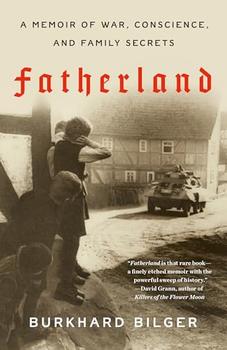Page 1 of 1
There is 1 reader review for Fatherland
Write your own review!
Abdullah Shaikh
Fatherland review
Fatherland is a historical fiction novel written by Robert Harris and published in 1992. The book is set in an alternate history where Nazi Germany won World War II and portrays the aftermath of the war in 1964. The story is centered on a Berlin detective, Xavier March, who is investigating a murder that leads him to uncover a conspiracy that threatens the stability of the Nazi regime. Harris's novel is a fascinating exploration of what could have happened if the outcome of the Second World War had been different, and the book has been critically acclaimed for its vivid portrayal of a dystopian society.
Plot Summary
Fatherland is set in an alternate history where Nazi Germany won World War II. The novel is set in 1964, and Germany has established a hegemony over Europe, and Hitler's Third Reich has become the dominant power in the world. The story is centered on a Berlin detective, Xavier March, who is investigating the murder of a high-ranking Nazi official, Josef Bühler. The investigation leads March to uncover a vast conspiracy that threatens to destabilize the Nazi regime.
March is a former member of the SS, but he is disillusioned with the regime and is secretly opposed to the Nazis. He is divorced, has a teenage son, and is under surveillance by the Gestapo. When he is assigned to investigate the murder of Bühler, he is initially reluctant to take on the case but is later convinced by his superior to investigate the murder thoroughly.
March is aided in his investigation by a journalist, Charlie Maguire, who is working for an American newspaper. Maguire is investigating a story about the Nazi regime's use of slave labor, and his investigation overlaps with March's investigation into Bühler's murder. The two men eventually team up to uncover the conspiracy that threatens to destabilize the Nazi regime.
The investigation leads March and Maguire to a secret meeting of high-ranking Nazis, where they discover evidence of a plan to invade the Soviet Union. The plan involves the use of nuclear weapons and is designed to be a preemptive strike against the Soviet Union, which the Nazis believe is planning to launch an attack against Germany.
March and Maguire's discovery of the conspiracy puts their lives in danger, and they are pursued by the Gestapo. They manage to escape and go into hiding, but the evidence they have collected is taken by the authorities. March is eventually captured and is forced to confront the reality of the Nazi regime's brutality.
The novel's climax takes place during a victory celebration in Berlin, where March confronts the Nazi leadership about the conspiracy he has uncovered. The confrontation leads to a violent confrontation, and March manages to escape with the help of Maguire. The novel ends with March and Maguire escaping to Switzerland, and March is left to contemplate the consequences of the conspiracy he has uncovered.
Themes
Fatherland explores several themes, including the dangers of totalitarianism, the role of the individual in society, and the power of the state. The novel portrays an alternate reality where the Nazis have established a totalitarian state that controls every aspect of people's lives. The novel shows how the regime uses propaganda and censorship to control the population and maintain power.
The novel also explores the role of the individual in society. March is a character who is torn between his loyalty to the state and his conscience. He is a former member of the SS but is secretly opposed to the regime. March's struggle to balance his duty to the state and his conscience is a central theme of the novel.
The novel also explores the power of the state. The Nazi regime in Fatherland has absolute power and is able to control every aspect of people's lives. The novel shows how the regime uses this power to maintain control and suppress dissent. The regime is portrayed as brutal and merciless, willing to do
